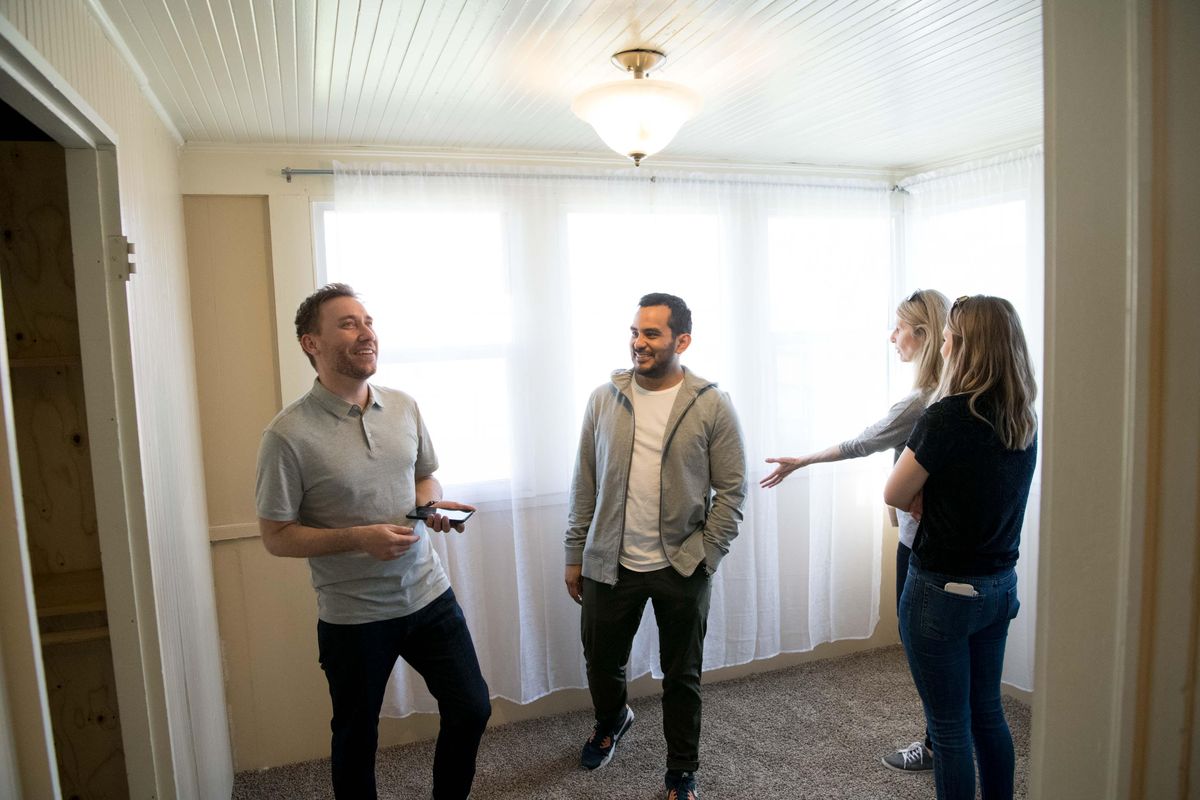Realtors say Zillow, other websites are inaccurate and confusing but lead buyers to those in the know

Not that long ago, prospective home buyers would trawl neighborhoods looking for that one sure symbol of a house for sale: the yard sign.
Nowadays, the yard sign, though still ubiquitous, has been replaced by a 21st century proxy: Zillow.
It’s a useful, if imperfect, tool for home hunters. But real estate agents aren’t really happy about Zillow’s dominance, even if they recognize the role Zillow and other online real estate sites play in home buying.
“I honestly never look at it. When I do comps on a property, I never look at Zillow,” said Patrick Kendrick, a real estate agent in Spokane for the past six years who works with Audubon Realty, referring to comparable sales. “It’s still a great resource for a search process: learning about areas, getting a general idea what things are looking like and what people are looking for.”
Kendrick, who also owns a number of single-family and multifamily property investments, said the information on the website is getting better but is still largely unreliable, leading him to refer to it as “drunk uncle Zillow.”
“They can go in either direction,” he said of price estimates. “They can be either superinflated or they can go way under. It’s just an unfortunate sliding scale.”
Zillow, the online real estate database company founded in 2006 by former Microsoft and Expedia executives, is the biggest among many websites that have waded into the real estate market. Trulia was a major competitor before Zillow purchased it in 2014 for $3.5 billion. Other independent competitors include Redfin, Homesnap, Neighborhood Scout and Realtor.com.
At Zillow, prospective buyers or curious lurkers are greeted with the “Zestimate,” the company’s estimated market value that uses a proprietary formula buttressed by publicly available data.
The Seattle-based company claims its estimates are accurate, with a median error rate of less than 5 percent, which means the estimates for half the listed homes are within about 5 percent of the final selling price and half are off by more than about 5 percent.
The estimate also varies depending on where the home is located. In the Dallas area, the median error rate is more than 8 percent. In Phoenix, it’s about 3 percent.
In Spokane County, Zillow says its median error rate is 5.4 percent, but characterized its estimate as a “fair Zestimate,” below its “best” and “good” categories and just above its lowest rating of “tax assessor’s value.”
In other words, it’s not very accurate, according to Steve Freeman, a real estate agent with Keller Williams, who said, “It’s a bit like a broken clock, it’s right twice a day. Zillow is going to be right sometimes.”
“It’s really hit and miss. It fluctuates a lot. Sometimes the values they have are way high. Sometimes they’re low. They’re really inconsistent as far as pricing,” said Freeman, who’s been selling homes in Eastern Washington for 16 years. “I don’t know any agents that use Zillow. We just go on the MLS system.”
Unlike the MLS, the multiple listing service used by members of the National Association of Realtors to post properties, Zillow doesn’t have up-to-date information on house status, Freeman said.
He said he gets calls from confused potential home buyers.
“A lot people don’t realize some of these houses are not listed, they’re not on the market or they’re under contract. It’s not infrequent to get a call about a house that’s been sold, or was sold two years ago,” he said. “MLS has much more updated status, and agents can see that.”
Freeman said the site has had the positive impact of making his business more personalized for his clients.
“Nine times of 10, when I show people houses, it’s that feeling. Call it sixth sense, call it intuition, it’s that feeling,” he said. “Zillow is forcing agents to get more personal. … The networking thing has become more important. It’s almost a paradox. It doesn’t seem logical. The more technological we’ve become, it’s forced us to become more personal.”
Kendrick agreed. He said that “the human on the ground” has a much more intimate knowledge of homes and neighborhoods than any website could, mentioning an agent’s ability to describe galvanized plumbing or the presence of a dropped ceiling.
Use Zillow to begin your search, Kendrick said, but make haste to contact a real estate agent.
“If you see something you like, text me and I’ll look it up with the actual facts,” he said. “Before you fall in love with something, I’ll check to see if they’re single.”